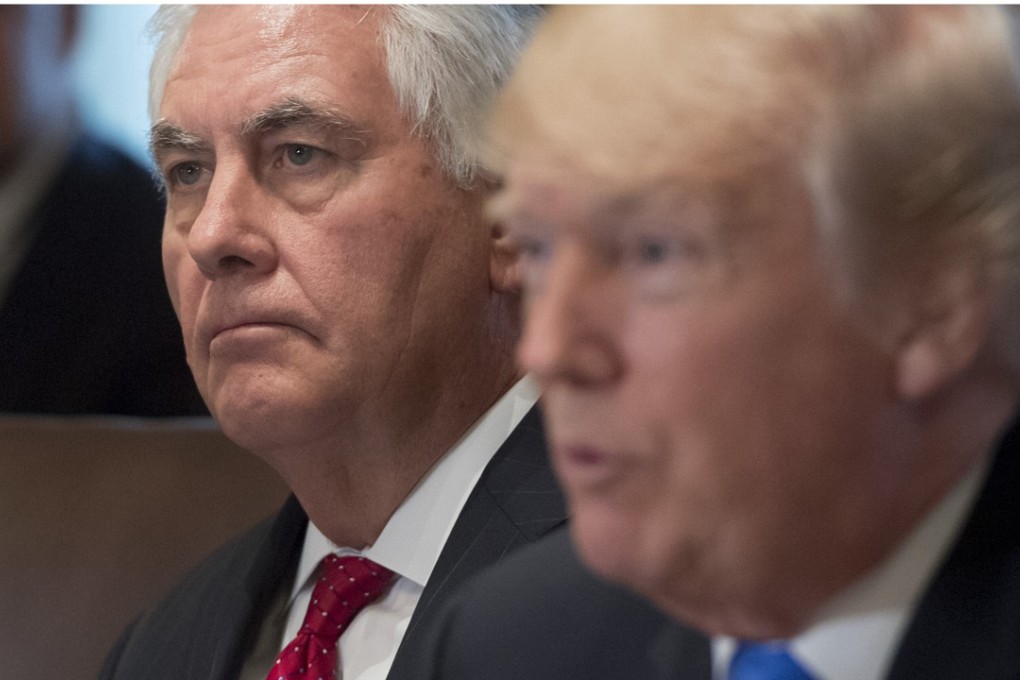US ‘welcomes’ softer tone on Korean Peninsula but watches Pyongyang warily
US State Department in talks with Seoul to ensure North Korea’s Olympics participation does not violate UN sanctions aimed at nuclear programme

The US State Department said it welcomed talks between Pyongyang and Seoul on North Korea’s participation in the Pyeongchang Winter Olympics, despite a US lawmaker’s call for America to boycott the Games.
In a statement, the State Department said it was in “close consultations” with Seoul to ensure that North Korea’s participation in the Olympics in the mountainous South Korean county does not violate sanctions imposed by the UN Security Council aimed at halting North Korea’s “unlawful” nuclear and ballistic missile programmes.
Tuesday’s statement also said that during a phone call last Friday, US President Donald Trump and his South Korean counterpart Moon Jae-in agreed to continue their campaign of “maximum pressure” on North Korea to achieve the “complete and verifiable” denuclearisation of the Korean Peninsula.
The Koreas – which have existed as two separate entities since the end of the second world war – held their first official dialogue in two years at the border village of Panmunjom.
At the same time it said it would send a delegation to the Olympic Games in Pyeongchang, North Korea said it accepted Seoul’s proposal to hold military talks to reduce regional tensions, according to a joint statement released after the meeting.
North Korea’s Olympic delegation is to include high-ranking officials, athletes, cheering and performing arts squads, tae kwon do demonstration teams and journalists, the reclusive state said earlier on Tuesday.